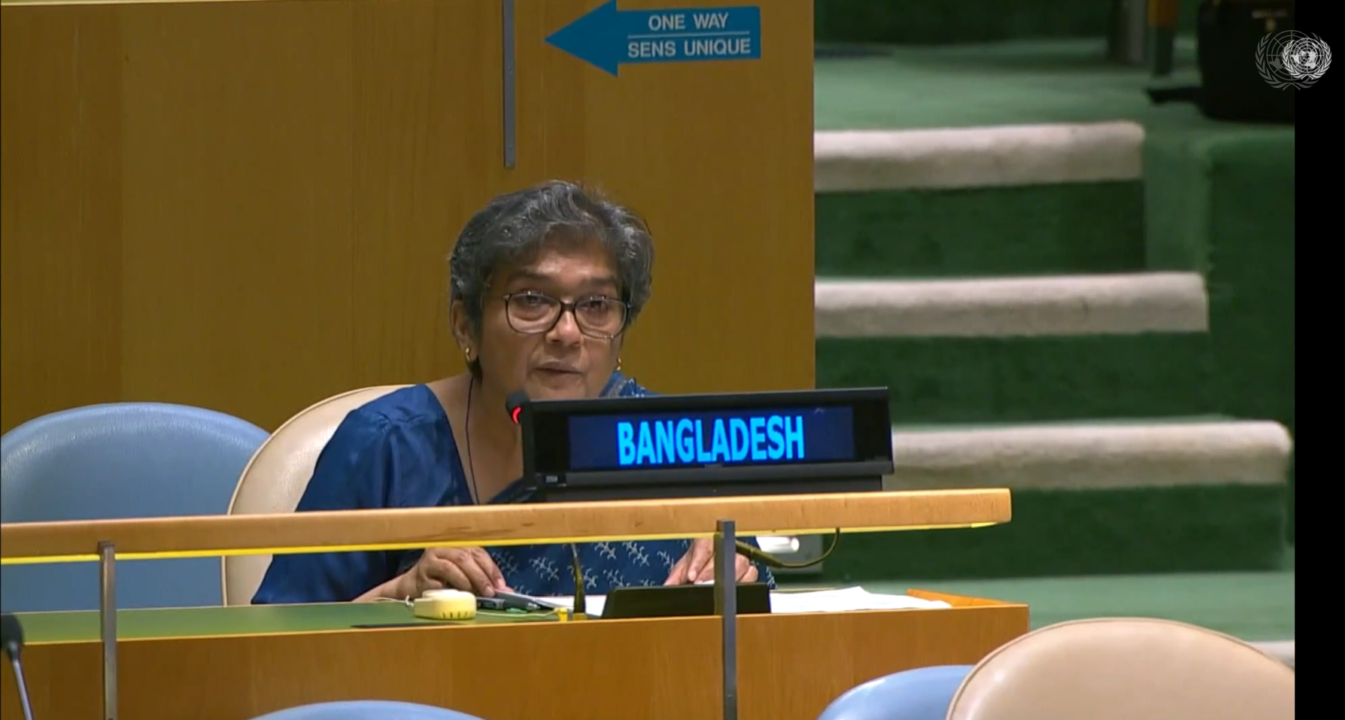Mr. Chair,
At the outset, let me congratulate you and other members of the Bureau on your election. You can count on my delegation’s full support and cooperation.
Bangladesh aligns itself with the statement delivered by Guinea on behalf of Group 77 and China. Allow me to share a few thoughts in my national capacity.
Mr. Chair,
We are meeting amidst the second year of the devastating pandemic. The pandemic has exacerbated pre-existing inequalities and exclusion both within and across our societies.
While no country has been spared the scourges of the pandemic, in Bangladesh, the impacts of Covid-19 has been less than initially feared, thanks to the timely and bold measures taken. The government, at the very onset, took pragmatic decisions to strike a balance between lives and livelihoods. A range of stimulus packages were rolled out to support key sectors and the most vulnerable section of the society.
Mr. Chair,
We recognize the challenges that lie ahead, especially in ensuring a sustainable and resilient recovery from the COVID-19. And we believe that this Committee has a special responsibility to promote actions to protect the most vulnerable, and to help us chart a recovery that leaves no one behind.
Allow me to share few thoughts in this regard:
First, ensuring universal and affordable access to vaccines should be our top most priority. According to the World Bank, 84 percent of vaccine doses have so far gone to people in high and upper middle-income countries, while the low-income countries received less than 1%.
We must address this inequality urgently. I reiterate our call to announce COVID 19 vaccine as a global public good. Vaccine production and distribution capacity must be scaled up urgently to ensure vaccines for all.
Second: We are seriously concerned by the impacts of COVID-19 on women. Gender-based violence has risen. Many women have lost their jobs and income. Women must be placed at the front and center of COVID-19 response and recovery.
In Bangladesh, we have taken targeted measures to address the impact of the pandemic on women, which include special allocations for women-led SMEs; re-skilling programmes; and interest-free mortgage and loan facilities for women entrepreneurs. Special ‘help-lines’ were introduced to stop violence and child marriage.
Third: We consider education as the most effective tool for empowering people and ensuring their rights. During the pandemic, education system has suffered gravely. Close to half the world’s students were affected by school closures. Millions of them in low-income countries did not have access to remote learning facilities. Millions of girls may never return to schools. Exploitation, child labour and early marriages have risen.
We cannot allow the pandemic to become a children’s crisis. We need a global plan to prioritize education recovery by investing in digital tools and services, access to internet, and capacity building of teachers.
Fourthly: Globally migrants have been particularly hard-hit by the pandemic. They faced loss of jobs, salary cuts, lack of access to health and other social services, and forcible return. In Bangladesh, two million migrant workers, including women have returned home. We will continue to work with all, especially the destination countries to ensure protection of their rights and wellbeing.
Fifth: The Rohingya crisis remains a concern for us. Over a million Rohingyas continue to live in the camps in Bangladesh with an uncertain future as the situation in Myanmar continues to remain a concern. Not a single Rohingya could return home in the last four years.
On our part we are doing our best to ensure humanitarian assistance to them. We have included all eligible Rohingyas in the national vaccination drive to curb the spread of COVID-19 in the camps.
The international community and regional countries must continue their efforts to resolve the crisis through the safe, sustainable, and dignified return of the Rohingyas to their homes in Myanmar. Creating conducive environment in the Rakhine State and ensuring accountability for the horrendous crimes committed against them are critical in this regard. The special mechanisms created in this regard must be strongly supported in carrying out their mandates.
We will work with the OIC and the European Union on the annual resolution in this Committee on the human rights situation of Rohingya Muslims and other minorities in Myanmar; and will count on this Committee to send a resounding message for urgent actions to resolve this festering crisis.
Finally, as a member of the Human Rights Council and party to all core human rights instruments, we remain constructively engaged with all concerned to ensure the promotion and protection of all people, everywhere, and at all times. Our civil society partners, media and the national human rights commission remain an integral part of our efforts.
Now more than ever, as human rights of people are in peril globally, we must redouble our efforts. We count on this Committee to show real leadership; and we are confident, Mr. Chairman, you will steer us to the right course.
I thank you, Mr. Chair.

